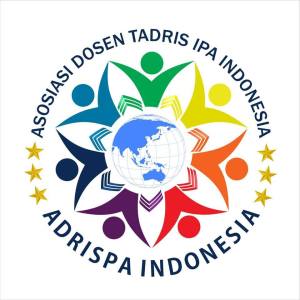APPLICATION OF THE INQUIRY BASED ICARE LEARNING MODEL TOWARD COGNITIVE LEARNING OUTCOMES ON SALT HYDROLYSIS MATERIAL
DOI:
https://doi.org/10.21154/insecta.v4i2.7170Keywords:
ICARE Learning Models, Inquiry Approach, Cognitive Learning Outcomes, Salt HydrolysisAbstract
The implementation of chemistry learning that is teacher centered and the lessons are in the last hour making students lack concentrated so that it is difficult to understand the material delivered by the teacher, one of which is salt hydrolysis. This makes the test results of many students who have not reached the minimum completeness criteria (KKM) of the school is 70. Therefore, the purpose of this study is to find out differences in cognitive learning outcomes between students SMA N 01 Godong who used the inquiry-based ICARE model and the conventional model on salt hydrolysis material after being controlled by initial abilitiy (pre test). This study used a randomized pretest-posttest control group design and cluster random sampling. Data collection techniques using tests, observation, documentation, and interviews. The research data were analyzed using covariance analysis (anakova). Based on the results of the study, it was found that there were differences in cognitive learning outcomes that significant between the application of the inquiry-based ICARE learning model with conventional models after controlling the initial ability (pre-test) indicated from the sig value. 0.000. The value is smaller from 0.05 so that Ha of the study was accepted. The results can be concluded that the inquiry-based ICARE learning model can be used to make students' cognitive learning outcomes better than conventional learning models.References
Aida, N., Kusaeri, & Hamdani, A. S. (2017). Karakteristik Instrumen Penilaian Hasil Belajar Matematika Ranah Kognitif yang Dikembangkan Mengacu pada Model Pisa. Suska Journal of Mathematics Education, 3(2), 130”“139.
Annuru, T. A., Johan, R. C., & Ali, M. (2017). Peningkatan Kemampuan Berpikir Tingkat Tinggi Dalam Pelajaran IPA Peserta Didik SD Melalui Model Pembelajaran Treffinger. EDUTCEHNOLOGIA, 3(2).
Ardiawan, I. . K. . (2019). Implementasi Pendekatan Inquiry Terbimbing dalam Upaya Meningkatkan Hasil Belajar IPA Pada Siswa SD. Tantangan Dan Peluang Dunia Pendidikan, 43”“50.
Azizah, N., Huwaida, J., & Khadafi, K. (2022). Penerapan Model Pembelajaran ICARE ( INTRODUCTION , CONNECTION , APPLYCATION , REFLECTION & EXTENDSION ) Untuk Meningkatkan Ranah Psikomotorik Siswa Pada Materi Fikih Di Pondok Pesantren Darul Fikri Ponorogo. In FORDETAK:Seminar Nasional Pendidikan: Inovasi Pendidikan di Era Society 5.0 (pp. 186”“190).
Carni, Maknun, J., & Siahaan, P. (2017). An Implementation of ICARE Aproach (Introduction, Connection, Application, Reflection, Extension) to Improve The Creative Thingking Skills. Journal of Physics: Conference Series, 1(812).
Eliyawati, R. (2017). Peningkatan Mengungkapkan Monolog Deskriptif Lisan Menggunakan Sistem ICARE Pada Siswa Kelas VII SMPN 1 Karang Ploso. Konstruktivisme, 9(1), 121”“134.
Haidar, D. ., Yulianti, L., & Handayanto, S. . (2020). The Effect of Inquiry Learning With Scaffolding on Misconception of Light Material Among Fourth Grade Students. Indonesian Journal of Science Education, 9(4), 540”“553.
Herliani, Boleng, D. T., & Maasawet, E. T. (2021). Teori Belajar dan Pembelajaran. Lakeisha.
Ibrohim, Kamdi, W., Saryono, D., Dasna, I. W., & Wonorahardjo, S. (2021). (Learning Inovation Book Series) Research Based Transdisciplinary Approaches. Universitas Negeri Malang.
Kadir. (2015). Statistik Terapan (Konsep,Contoh dan Analisis Data dengan Program SPSS/lisrel dalam pnelitian. PT Raja Grafindo Persada.
Kemendikbud. (2022). Rapor Pendidikan. In Rapor Pendidikan Dinas Satuan Pendidikan. https://raporpendidikan.kemendikbud.go.id
Krisna, F. ., Sisdiana, E., Sofyatiningrum, E., & Hariyanti, E. (2020). Higher Order Thingking Skills Learning Policy in K-13 : Economic and Political Perspectives. Jurnal Pendidikan Dan Kebudayaan, 5(1), 43”“58.
Kurniawan, B., Wiharna, O., & Permana, T. (2018). Studi Analisis Faktor-Faktor yang Mempengaruhi Hasil Belajar pada Mata Pelajaran Teknik Listrik Dasar Otomotif. Journal of Mechanical Engineering Education, 4(2), 156. https://doi.org/doi: 10.17509/jmee.v4i2.9627
Nyoman, N., Arianti, S., Astawan, I. G., & Krisnaningsih, M. (2021). Penerapan Model Pembelajaran ICARE untuk Meningkatkan Hasil Belajar IPS Siswa Kelas IVB SD. Jurnal Ilmiah Pendidikan Profesi Guru, 4(2), 240”“250. https://doi.org/http://dx.doi.org/10.23887/jippg.v4i2
OECD. (2019). Programme for International Student Assessment Result from PISA 2018. In oecd (pp. 1”“10).
Payadnya, I. P. A. ., & Jayantika, I. G. A. N. . (2018). Panduan Penelitian Eksperimen Beserta Analisis Statistik Dengan SPSS. Deepublish.
Puspendik. (2019). PISA. In Pusat Penilaian Pendidikan Balitbang Kemendikbud.
Rayanto, Y. ., & Supriyo. (2022). The Effectiveness of ICARE Model on Micro Teaching Subjects through Hybyid Learning Class. International Journal of Humanities Education and Social Sciences (IJHESS), 1(6), 929”“938.
Saragih, H., Hutagulung, S., Mawati, A. T., Chamidah, D., Khalik, M. ., Sahri, Purba, P. W. ., PURBA, S. R. F., & Kato, I. (2021). Filsafat Pendidikan. Yayasan Kita Menulis.
Sari, I. K. W., & Wulandari, R. (2020). Analisis Kemampuan Kognitif Dalam Pembelajaran IPA SMP. Jurnal Pendidikan Dan Pembelajaran Sains Indonesia (JPPSI), 3, 145”“152.
Suartama, I. K., Putu, L., Mahadewi, P., Gede, D., Divayana, H., & Yunus, M. (2022). ICARE Approach for Designing Online Learning Module Based on LMS. International Journal of Information and Education Technology, 12(4). https://doi.org/10.18178/ijiet.2022.12.4.1619
Sugiyono. (2019). Statistika untuk Penelitian. Alfabeta.
Sun, C., Liu, J., Razmerita, L., Xu, Y., & Qi, J. (2022). Higher Education to Support Sustainable Development: The Influence of Information Literacy and Online Learning Proses on Chinese Postgraduates Innovation Performance. Multidisciplinary Digital Publishing Institute (MDPI), 14(7789).
Yun, W., Longkai, W., Sujin, H., Nathanel, H. E. ., Beng, C. ., Chee, K. ., & Yiyu, C. (2023). Integrating Augmented Reality Into Inquiry Based Learning Approach in Primary Science Classroom. Association for Educational Communications and Technology, 1631”“1651.








